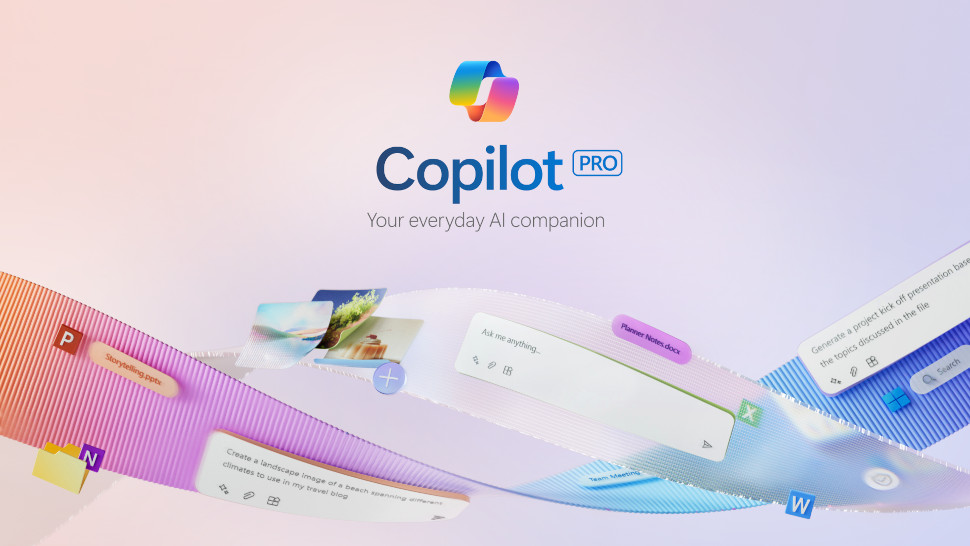"You don't need an AI strategy, you need a business strategy for AI": Microsoft tells us why utilizing AI at work could not only make you more productive — but happier too
Workers and bosses alike need to realize the potential of AI, Microsoft says

Artificial Intelligence (AI) is already permeating large parts of our personal and working lives, but the need to ensure it is being used efficiently and productivity is holding some businesses back from realizing their full potential.
A number of recent research reports have suggested workers at all levels are still struggling to get the most out of AI tools, although a Microsoft report found many are enjoying productivity and efficiency boosts.
To find out more, TechRadar Pro spoke to Colette Stallbaumer, WorkLab Cofounder and Copilot GM, about the actions companies need to take in order to fully embrace AI in the workplace.
AI relief
“People are using AI tools at work as they feel overwhelmed and under duress at work, and they want some relief," Stallbaumer says, "It's still early! Companies and people are on the journey…(but) there's a lot of light bulbs going on."
She notes the recent Microsoft Work Trend Index found three quarters (75%) of respondents are now using AI at work in some way - double the number from six months ago, with the technology helping boost creativity and freeing up time to focus on crucial tasks.
This figure has been boosted by the increasing presence of "AI natives" championing the use of the technology in their workplace, if by nothing else than having envious coworkers eavesdropping on what they are using AI for to free up more time.
These power users are often more productive, more creative, have better focus, and they enjoy work more, Stallbaumer notes, but they're also more likely to experiment with new tools and systems at work to find out what works best for their role.
Sign up to the TechRadar Pro newsletter to get all the top news, opinion, features and guidance your business needs to succeed!
"Once they get a taste of it and they start every day asking what can I delegate to AI," she adds, "these are the people who are coming up with ideas and bubbling those up to the top."
"Forward-thinking people in those fields are figuring out that (AI skills) make me even better at what I do."

This enthusiasm isn't just coming from younger employees, though, as Stallbaumer points out the increasing awareness of the benefits of AI are also being recognized by CEOs and leaders, who then cascade the positivity down to their employees. These are the companies seeing the most success when it comes to AI usage, as Stallbaumer says, "it's all about channelling that enthusiasm and energy that employees have for AI into actual business value."
"People talk about having an AI strategy - that’s actually a bit of a misnomer," she adds, "you don't need an AI strategy, you need a business strategy for AI."
”There’s another misnomer that these AI tools are limiters to creativity…(but) AI is not creative - people are!”
Looking forward, Microsoft is obviously in a strong position to continue this embracing of AI technology in many forms across the globe, with its Copilot platform set to become a common presence in workplaces everywhere.
But the company is keen to have its tools used to augment work, rather than replace human roles, as Stallbaumer notes AI can help knowledge workers in particular become more structured, offloading menial or dull tasks to an AI that can be supervised and advised if needed.
She concludes that human skills such as communication, evaluation and creativity are still crucial for businesses everywhere, and Microsoft is keen to help democratize the use of AI tools as much as possible for now.
"We have a huge responsibility, and a huge opportunity…we want these tools to benefit society broadly," Stallbaumer says, "there’s no skill today that AI can do better than us…you can either choose fear, or choose to lean in and learn."
More from TechRadar Pro
- Check out the best online collaboration platform picks around right now
- We've rounded up the best LLMs on offer
- Microsoft unveils mini-model AI for small businesses

Mike Moore is Deputy Editor at TechRadar Pro. He has worked as a B2B and B2C tech journalist for nearly a decade, including at one of the UK's leading national newspapers and fellow Future title ITProPortal, and when he's not keeping track of all the latest enterprise and workplace trends, can most likely be found watching, following or taking part in some kind of sport.